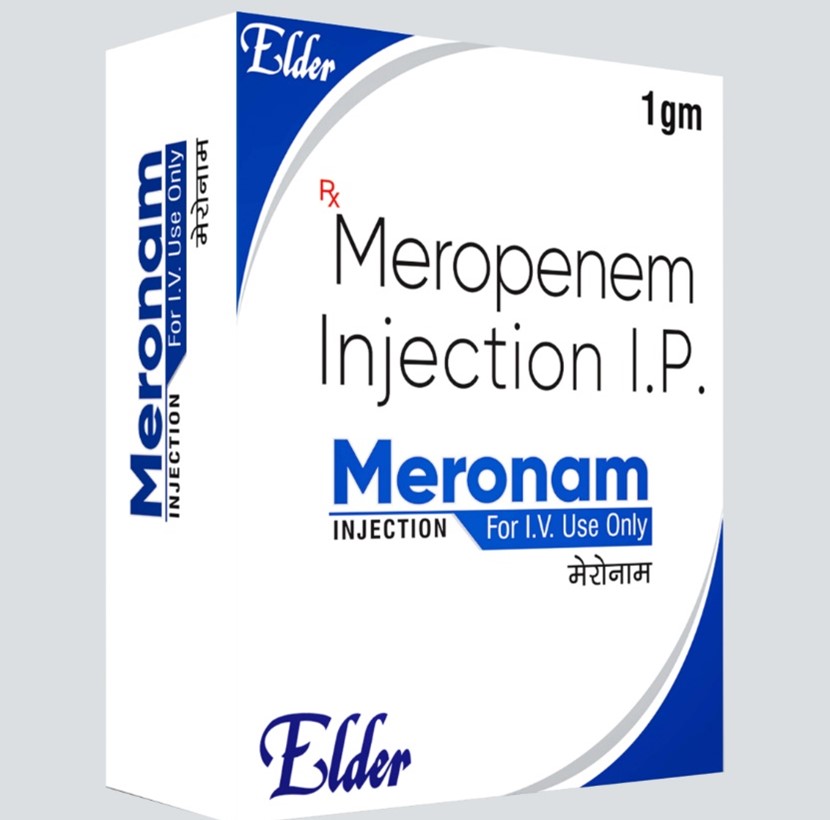In caring for a client who is receiving meropenem IV for nosocomial pneumonia, which assessment finding is most important for the nurse to report to the health care provider?
Yellow-tinged sputum
Nausea and headache
Watery diarrhea
Increased fatigue
The Correct Answer is C
Choice A: Yellow-tinged sputum is not a critical finding for the nurse to report, as this is a common sign of pneumonia and does not indicate an adverse reaction to meropenem. This is a distractor choice.
Choice B: Nausea and headache are not urgent findings for the nurse to report, as these are mild side effects of meropenem and can be managed with supportive measures. This is another distractor choice.
Choice C: Watery diarrhea is an important finding for the nurse to report, as this can indicate a serious complication of meropenem, such as Clostridioides difficile infection, which can cause severe dehydration, electrolyte imbalance, and sepsis. Therefore, this is the correct choice.
Choice D: Increased fatigue is not a significant finding for the nurse to report, as this can be related to the client's underlying condition and does not suggest a problem with meropenem. This is another distractor choice.

Nursing Test Bank
Naxlex Comprehensive Predictor Exams
Related Questions
Correct Answer is ["B","C","D","F"]
Explanation
Choice A reason: Alcohol consumption will not produce vascular changes is incorrect information. Alcohol consumption can increase blood pressure by causing vasoconstriction, fluid retention, and interference with antihypertensive medications. The nurse should advise the client to limit alcohol intake to no more than one drink per day for women and two drinks per day for men.
Choice B reason: Sodium intake can be regulated by limiting canned foods in the diet is correct information. Sodium intake can increase blood pressure by causing fluid retention and increasing vascular resistance. The nurse should advise the client to limit sodium intake to no more than 2300 mg per day and avoid processed foods that are high in sodium, such as canned foods, soups, sauces, and snacks.
Choice C reason: Salt substitutes can help with maintaining a healthy diet is correct information. Salt substitutes can reduce sodium intake by replacing sodium chloride with potassium chloride or other minerals. The nurse should advise the client to use salt substitutes sparingly and consult with their healthcare provider before using them if they have kidney disease or take certain medications that affect potassium levels.
Choice D reason: Weight management is promoted by taking daily walks for thirty minutes is correct information. Weight management can lower blood pressure by reducing body fat, improving blood circulation, and enhancing insulin sensitivity. The nurse should advise the client to maintain a healthy weight and engage in moderate physical activity for at least 150 minutes per week.
Choice E reason: Blood pressure readings should be taken at noontime is incorrect information. Blood pressure readings should be taken at different times of the day, preferably in the morning and evening, to monitor fluctuations and trends. The nurse should advise the client to use a home blood pressure monitor that is accurate and calibrated and follow proper techniques for measuring blood pressure.
Choice F reason: Uncontrolled hypertension can lead to renal damage is correct information. Uncontrolled hypertension can damage the blood vessels in the kidneys, leading to reduced kidney function and chronic kidney disease. The nurse should advise the client to follow their prescribed treatment plan and monitor their blood pressure regularly.
Correct Answer is B
Explanation
Choice B is correct because initiating a continuous infusion of IV fluids per prescription has highest priority for an infant with pyloric stenosis who is scheduled for a pyloromyotomy. Pyloric stenosis causes projectile vomiting and dehydration, which can lead to metabolic alkalosis and electrolyte imbalance. The infant needs IV fluids to correct these abnormalities and prevent complications.
Choice A is incorrect because marking an outline of the “olive-shaped” mass in the right epigastric area is not a priority action for an infant with pyloric stenosis who is scheduled for a pyloromyotomy. The “olive-shaped” mass is a palpable sign of pyloric stenosis, but it does not require any intervention before surgery.
Choice C is incorrect because monitoring amount of intake and infant's response to feedings is not a priority action for an infant with pyloric stenosis who is scheduled for a pyloromyotomy. The infant may have difficulty feeding due to vomiting and gastric distension, which can worsen their dehydration and malnutrition. The infant may need to be kept NPO (nothing by mouth) before surgery.
Choice D is incorrect because instructing parents regarding care of the incisional area is not a priority action for an infant with pyloric stenosis who is scheduled for a pyloromyotomy. The incisional area will need proper care after surgery, but this can be taught later when the infant is stable and ready for discharge.
Whether you are a student looking to ace your exams or a practicing nurse seeking to enhance your expertise , our nursing education contents will empower you with the confidence and competence to make a difference in the lives of patients and become a respected leader in the healthcare field.
Visit Naxlex, invest in your future and unlock endless possibilities with our unparalleled nursing education contents today
Report Wrong Answer on the Current Question
Do you disagree with the answer? If yes, what is your expected answer? Explain.
Kindly be descriptive with the issue you are facing.
